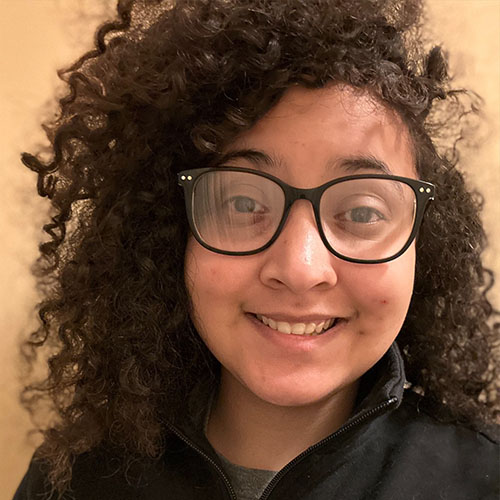WKU News
Michaela Snyder - Spotlight
- Kinslei Crouch
- Wednesday, November 22nd, 2023

Michaela Snyder (MHC ‘23) graduated with majors in Computer Science and the self-design studies major of Semantics Based Computational Linguistics. With the MHC, scholars have the opportunity to work with advisors to customize a degree that aligns with their passions. Michaela took advantage of this opportunity and graduated with a self-design studies major which she supplemented with computer science since WKU does not have a linguistics department. She is originally from Stevens, Washington and was a peer mentor while in the MHC. Additionally, she completed an undergraduate thesis, or CE/T, that was closely related to her self-design studies major.
Michaela’s CE/T titled, “Simulating the Machine Translation of Low-Resource Languages by Designing a Translator Between English and an Artificially Constructed Language” was the result of an idea stemming from her Honors 251 class. The class was assigned an “Off-Road Learning Project" where students were encouraged to do something they wouldn’t normally get to do in a class or have the time to do outside of class. She decided to build off her passion for languages and use this opportunity to create one of her own. The success of that language fueled her interest in the thesis track of the MHC, and she aimed to combine her constructed language with machine translation. After researching ways this project could be feasible and meaningful in her field, she placed the focus of her CE/T on low resource languages.
There are an incredible amount of languages in the world, many considered low resource languages because of the limited documentation available on them. Moreover, human translators can be difficult to find, especially those who can speak those low resource languages. Michaela notes that, “It's really hard to communicate with people that don't speak any of the bigger languages,” she said. “I wanted to see if we could use that to take the small amounts of information we know about these low resource languages, and see if we can teach a program to be able to translate between those languages and high resource languages like English.” Michaela was happy with the outcome of her CE/T but nonetheless encountered a few setbacks, one being the English language itself. She discusses difficulties with the machine translating words in English that don’t semantically contribute to the meaning of a sentence, such as “do.” She also found the one year time constraint difficult, and she did not have the time to complete everything she would have liked to. Moreover, she did not start writing her CE/T as early as she could’ve and expresses the necessity of keeping to a schedule and utilizing accountability partners.
When asked how the MHC contributed to her college experience, Michaela responded, “Without [the] MHC, probably my entire college experience would have been different. My entire degree would be different.” Michaela received an Honors Development Grant (HDG) to fund her research and the development of her program, including giving her access to a stronger computer for her CE/T. HDGs are associated with academic opportunities used to obtain honors credit, and they can be granted for financial support in academic research, conference travel fees, and supplies for scholarly projects. During Michaela’s college experience, the MHC provided her with community, evidenced in her involvement with the Peer Mentors, academic support through the opportunity to complete both a self-design studies major and a CE/T, and financial support through the HDG. Michaela is planning to go to graduate school and continue working towards the success of her translator. You can read Michaela’s CE/T at https://digitalcommons.wku.edu/cgi/viewcontent.cgi?article=2013&context=stu_hon_theses
We are so proud of Michaela’s incredible work and are excited to see how she continues to ascend toward excellence in her graduate school experience.
Some of the links on this page may require additional software to view.

